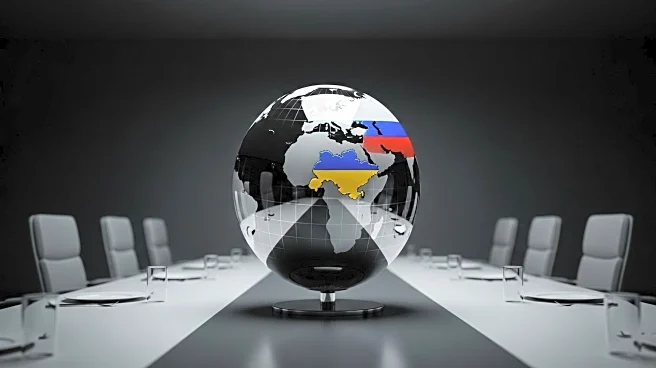What is the story about?
What's Happening?
Ukraine has called for an emergency meeting of the UN Security Council to address a recent Russian attack on Kyiv. The meeting, scheduled for August 29, aims to discuss the destruction caused by the strike and to urge for an immediate ceasefire and protection of civilians. The attack involved approximately 630 drones and missiles, resulting in the deaths of at least 25 people, including four children, and injuring over 60. This development comes amid ongoing efforts by the United States to negotiate an end to the conflict, despite Russia's refusal to agree to a ceasefire.
Why It's Important?
The emergency meeting underscores the escalating tensions and humanitarian crisis in Ukraine. The attack on Kyiv highlights the ongoing threat to civilian lives and infrastructure, raising international concerns about the conflict's impact on regional stability. The involvement of the UN Security Council signifies the global community's recognition of the need for urgent intervention and dialogue. The situation poses significant challenges for international diplomacy, with potential implications for U.S. foreign policy and European security strategies.
What's Next?
The UN Security Council meeting may lead to increased diplomatic pressure on Russia to halt its military actions in Ukraine. European Union defense ministers have expressed readiness to deploy military instructors to Ukraine following a potential ceasefire, indicating a commitment to support Ukraine's defense capabilities. The international community will likely continue to monitor the situation closely, with potential for further sanctions or diplomatic measures against Russia.
Beyond the Headlines
The conflict in Ukraine has broader implications for global geopolitics, including the balance of power in Eastern Europe and the role of international organizations in conflict resolution. The humanitarian impact of the war, including civilian casualties and displacement, raises ethical concerns about the protection of human rights in conflict zones. The situation may also influence future international policies on military intervention and peacekeeping efforts.
















